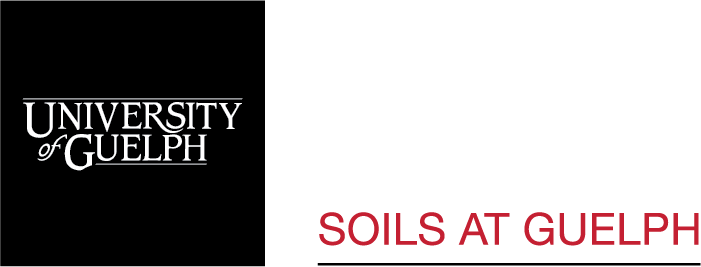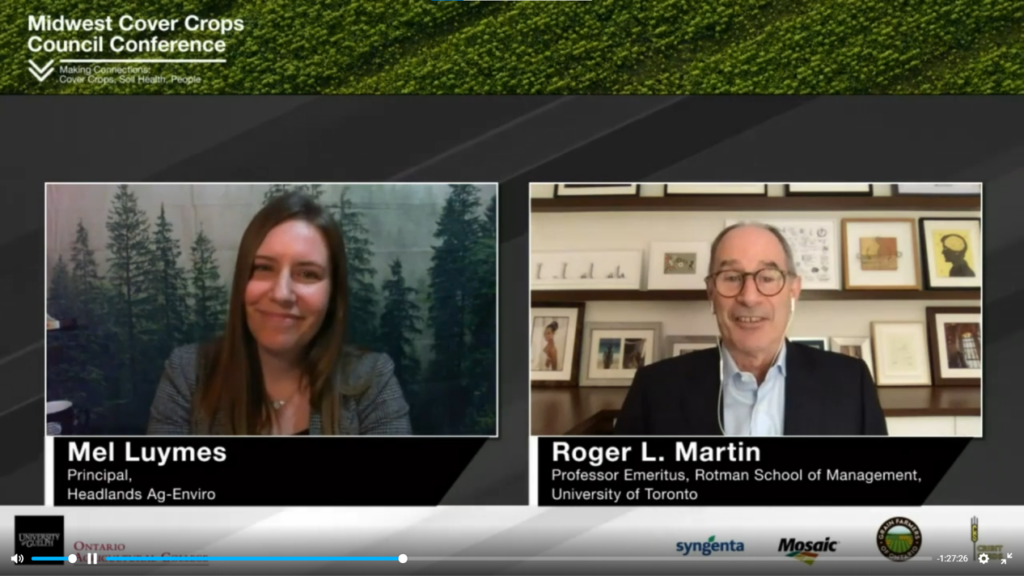“I have a view worth hearing, but I might be missing something.”
This is the attitude of an innovator described by top business mind, Roger L. Martin, at the virtual Midwest Cover Crops Council Conference on February 24.
Roger Martin is professor emeritus and former Dean of the Rotman School of Management at the University of Toronto. He grew up in Wallenstein, Ontario where his family was active with an agri-business in the feed industry, before going on to become the world’s #1 management thinker.
There is a trade-off between efficient and effective…we’ve been pushing efficiency so hard that it is now having counterproductive impacts on life, the economy, the environment.
Roger L. Martin
Following the theme of his latest book, WHEN MORE IS NOT BETTER: Overcoming America’s Obsession With Economic Efficiency, Martin participated in a keynote conversation with leaders in the agri-food industry to discuss the perils of obsessively pursing efficiency in agriculture, and how integrative thinking can help agriculture become more resilient. Over 600 people registered for the event.
“There is a trade-off between efficient and effective…we’ve been pushing efficiency so hard that it is now having counterproductive impacts on life, the economy, [the environment]. Pushing things to the extremes leads to extreme outcomes.”
The solution Martin recommends is having multiple measures or “proxies” for success, and not letting those proxies become success itself.
Creating new models for agriculture
In agriculture, our attention naturally goes to bushels per acre, feed conversion efficiency, and other efficiency measures. But other proxies – profit per acre, soil organic matter, annual soil loss – are necessary to develop a holistic picture of whether our farm enterprises are pursuing efficiency at the expense of resilience.
“When there is no great choice, don’t make it!” Martin said. “If you have a choice between A and B, and you love A and dislike B, then by all means choose A. But if you don’t really love either option, ask, What is it about A, and what is it about B that I love, [and how can I] combine those to make a novel, better C?”
Martin refers to this process as integrative thinking – solving complex problems by creating new superior models that contain elements of multiple previous inferior models.
Martin’s point relates to managing what appear to be tradeoffs in agriculture, like saving the soil versus saving the farm. Martin challenged the audience to embrace “an endless quest for better answers, better models.”
Challenging common practice
Following Martin’s conversation with freelance sociologist and writer Mel Luymes, a panel of agri-food industry leaders made further applications to agriculture.
“Don’t be afraid to take on some friction,” said chef-turned-farmer Dan Petker, referring to practices that build long-term resiliency at the expense of short-term efficiency. “Just because something has worked for 5, 10 years, engage with others and take something out of those discussions. Stagnation ends a lot of farms, relationships…everything!”
Martin and the panelists shared a common message encouraging those in the agri-food industry to think outside the box and challenge their traditions.
The event was made possible through support and funding from the Ontario Agricultural College Class of ’59 Future Thinkers fund, which exists to encourage innovative thinking in agriculture.


